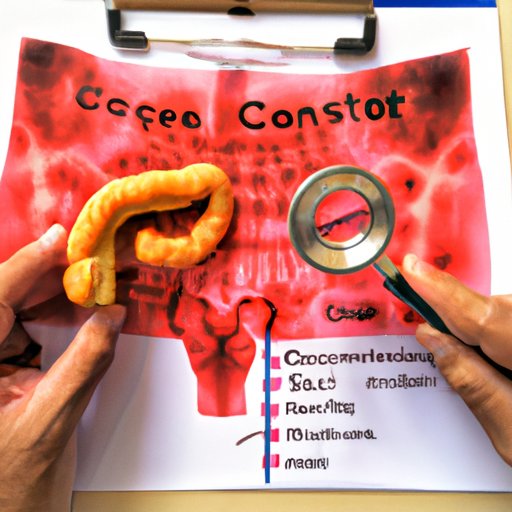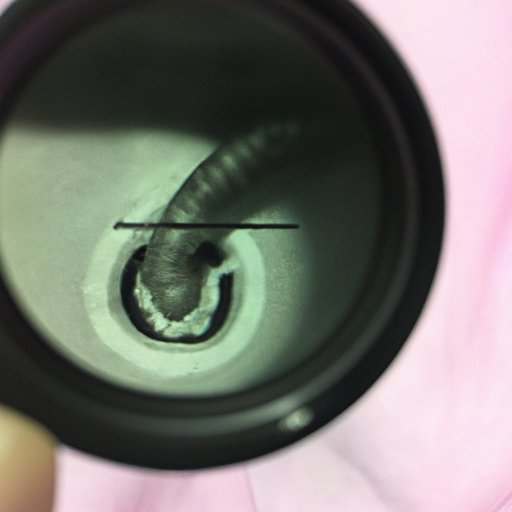Introduction
Celiac disease is a serious autoimmune disorder that affects the digestive system. It can cause damage to the small intestine, leading to malabsorption of essential nutrients, as well as other issues such as abdominal pain, bloating, diarrhea, and fatigue. If left untreated, celiac disease can lead to a range of complications, including osteoporosis, infertility, and even certain types of cancer. It’s important to get tested for celiac disease if you suspect you may have it.
Definition of Celiac Disease
Celiac disease is an autoimmune disorder caused by an abnormal response to gluten, a protein found in wheat, barley, and rye. When someone with celiac disease consumes gluten, their body produces antibodies that attack the small intestine, resulting in damage to the villi, which are tiny finger-like protrusions that line the small intestine and help absorb nutrients from food. This damage can cause malabsorption of essential nutrients, leading to a range of symptoms including abdominal pain, bloating, diarrhea, fatigue, and more.
Symptoms of Celiac Disease
The symptoms of celiac disease vary from person to person and can include abdominal pain, bloating, diarrhea, constipation, fatigue, skin rash, mouth ulcers, joint pain, and more. Some people may not experience any symptoms at all. If you think you may have celiac disease, it’s important to get tested so you can begin receiving treatment and prevent further damage to your small intestine.
Testing for Celiac Disease
If you suspect you may have celiac disease, it’s important to speak to your doctor and get tested. The process for testing for celiac disease involves several steps, including a blood test, a biopsy of the small intestine, and an upper endoscopy.
Visit Your Doctor for a Celiac Disease Screening
The first step in getting tested for celiac disease is to visit your doctor and ask for a celiac disease screening. Your doctor will ask about your medical history and perform a physical exam. They may also order a blood test to check for antigliadin and anti-endomysial antibodies, which are markers for celiac disease.
Blood Test for Antigliadin and Anti-Endomysial Antibodies
A blood test is one of the most common methods for diagnosing celiac disease. It looks for two specific antibodies — antigliadin and anti-endomysial antibodies — which are produced when someone with celiac disease is exposed to gluten. If these antibodies are present, it is likely that the person has celiac disease.

Request a Biopsy of the Small Intestine to Confirm the Diagnosis
If the blood test comes back positive for antigliadin and anti-endomysial antibodies, your doctor may recommend a biopsy of the small intestine. During this procedure, a small piece of tissue is taken from the lining of the small intestine and examined under a microscope. This will allow the doctor to determine whether or not there is damage to the villi, which is a sign of celiac disease.
Take an At-Home Celiac Disease Screening Kit
If you don’t have access to a doctor or you want to do the testing yourself, you can purchase an at-home celiac disease screening kit. These kits typically contain a blood test that checks for the presence of antigliadin and anti-endomysial antibodies. If the results of the test are positive, you should follow up with your doctor or a gastroenterologist for further testing.
Schedule an Appointment with a Gastroenterologist
If you test positive for antigliadin and anti-endomysial antibodies, your doctor may refer you to a gastroenterologist, who specializes in diagnosing and treating diseases of the digestive system. The gastroenterologist will order additional tests, such as an upper endoscopy, to confirm the diagnosis of celiac disease.

Have an Upper Endoscopy to Check for Damage to the Small Intestine
An upper endoscopy is a procedure in which a thin tube called an endoscope is inserted through the mouth and into the small intestine. The endoscope allows the doctor to see inside the small intestine and look for any signs of damage, such as inflammation or scarring, which can be indicative of celiac disease.

Ask Your Doctor to Order a Genetic Test to Look for Certain Gene Mutations Associated with Celiac Disease
A genetic test can also be used to diagnose celiac disease. The test looks for certain gene mutations associated with the condition. If the test is positive, it means that you have an increased risk of developing celiac disease and should be monitored closely.
Conclusion
Getting tested for celiac disease is an important step in managing the condition and preventing further damage to the small intestine. Speak to your doctor and ask for a celiac disease screening. If the results of the blood test are positive, you may need to undergo additional tests, such as a biopsy of the small intestine or an upper endoscopy. You may also want to consider a genetic test to look for certain gene mutations associated with celiac disease. By getting tested, you can receive an accurate diagnosis and begin treatment to manage your condition.
(Note: Is this article not meeting your expectations? Do you have knowledge or insights to share? Unlock new opportunities and expand your reach by joining our authors team. Click Registration to join us and share your expertise with our readers.)
